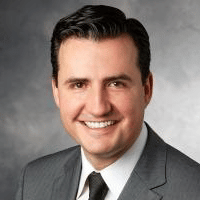Heart & Vascular Surgery
Best Surgical Options for You
Open heart surgery, also known as cardiovascular, cardiothoracic, or heart surgery, is any surgical procedure that involves incisions of five to eight inches to correct problems of the heart or of the blood vessels that carry blood to and from the heart. Surgery isn’t always needed to treat cardiovascular problems. Many cardiovascular conditions are treated with less invasive techniques that use catheters, devices, and robotics. However, surgery may be necessary where other treatments have not been effective or simply cannot be used.
Cardiovascular procedures are generally performed on patients who have heart disease or have had a heart attack, stroke, or blood clot – and individuals who are at high risk for developing these problems.
Our Services
Our surgical team treats virtually every kind of cardiovascular issue through one of three types of procedures:
To resolve chest pain and other heart-related issues, Grady surgeons routinely perform:
- Coronary bypass graft (CABG) surgery, a procedure in which a surgeon uses a healthy blood vessel from another part of your body to bypass narrowed or blocked sections of a coronary artery.
- Valve repair or replacement surgery. Valve repairs can usually be done on congenital valve defects (defects you are born with) and on mitral valve defects. Valve replacements are typically done when the valve is severely damaged, typically the mitral or aortic valves on the left side of the heart. Replacements are also done to treat live-threatening valve diseases.
- Aortic aneurysm surgery. An aortic aneurysm is a balloon-like bulge in the aorta, the large artery that carries blood from the heart through the chest and torso. Aortic aneurysms can dissect or rupture.
Cardiothoracic surgery involves procedures on the chest cavity (thorax) organs, including the heart, lungs, and esophagus. Grady’s Cardiothoracic Surgery team manages care both before cardiothoracic surgery and afterward.
Vascular surgery focuses on vascular conditions that cannot be repaired in other ways, which may include:
- Aortic aneurysm and aortic dissection. An aortic aneurysm is a balloon-like bulge in the aorta, the large artery that carries blood from the heart through the chest and torso. Aortic aneurysms can dissect or rupture when the force of pumping blood splits the artery wall, allowing blood to leak.
- Chronic arterial insufficiency, a common condition affecting mainly older patients. It normally involves the lower limbs and leads to leg numbness or pain.
- Chronic venous insufficiency, which occurs when your leg veins don’t allow blood to flow back up to your heart. This can cause blood to collect (pool) in your legs.
- Peripheral vascular disease, a slow, progressive circulation disorder caused by narrowing, blockage, or spasms in a blood vessel.
- Diabetic foot ulceration, an open sore or wound that occurs in roughly one of seven patients with diabetes. It is commonly located on the bottom of the foot.
- Carotid artery disease, which occurs when fatty deposits (plaques) clog the blood vessels that deliver blood to your brain and head (carotid arteries). The blockage increases the risk of stroke.
- Venus stasis ulcers, wounds on the leg or ankle caused by abnormal or damaged veins. Abnormal veins can be hereditary. Veins can also be damaged by blood clots, injury, aging, and obesity.
- Renal artery stenosis, the narrowing of one or more arteries that carry blood to your kidneys (renal arteries), which can compromise the kidneys’ ability to filter waste.
- Mesenteric artery stenosis, the narrowing of the arteries that supply blood to the intestines, which can result in pain, weight loss, nausea, diarrhea, or bleeding.
Locations and Directions
Grady Memorial Hospital
80 Jesse Hill Jr Drive SE
Atlanta, GA 30303
Heart & Vascular Center - 2nd Floor
Emergency Care: 24 hours a day, 365 days a year
Outpatient Care: Monday-Friday: 8 AM - 5 PM
(404) 616-1000 (Main)
(404) 616-1000 (Appointments)
Parking is available
Public Transportation
- Georgia State Station (0.5 Miles)
Why Choose Us
Grady is both Atlanta’s busiest Level I Trauma Center and its busiest STEMI receiving center. That means we have the personnel, infrastructure, and expertise to diagnose and treat patients who require intensive medical and surgical care, specialized tests, or interventional therapies – even for the most serious severe heart attacks, known as ST segment elevation myocardial infarctions (STEMIs). Grady also has an unparalleled array of fully staffed operating rooms and interventional suites available to treat patients 24/7.
And, following surgery, we provide the highest standards of ongoing care.
Our Cardiovascular Intensive Care Unit (CVICU) tends for critically ill and surgical patients, providing the highest level of care for patients with the greatest need. As they recover from surgery and their conditions improve, we transfer patients to step-down units that help them make the transition to a regular hospital room and, later, home.
Even after cardiovascular surgery patients are transferred to a regular hospital room, Grady monitors their vital signs remotely. Our telemetry unit is staffed round-the-clock by personnel that can respond immediately to any changes in heart rate, breathing, and blood pressure that signal a potential problem.
The point of all this is to protect our patients every step of the way through their treatment and recovery.
Appointments and Referrals
Grady’s Heart & Vascular Center accepts new patients with referrals from either primary care providers or other specialists. Please ask your provider to use our patient referral checklist and email us the details. We will contact you to schedule an appointment.
If you are an existing Grady patient and have a MyChart account, visit MyChart or call our scheduling line at (404) 616-1000, to make an appointment.
Our Doctors
Every hospital treats patients. At Grady, we strive to treat them better, more efficiently, and effectively. Our mission to care for all who need us attracts heart specialists from across the nation. They are drawn here by the knowledge that we test the limits of medicine by innovating existing standards of care, researching cutting-edge drugs and therapies, and exploring novel treatments.
Our zeal for innovation has given Grady a national reputation for medical advancement in areas like cardiovascular disease, cancer, burn, stroke, diabetes, infectious diseases, women’s health, sickle cell, and other conditions cared for by specialists in our centers of excellence. Access to all of these accredited practices is available to every Grady patient, and our collegial environment means that specialists routinely help to care for their colleagues’ patients.
Though clinicians are drawn by Grady’s reputation, most are employed by the Emory and Morehouse schools of medicine, which staff our medical services. Grady is one of a handful of U.S. health systems whose patients are cared for by faculty members of two medical schools. This reinforces our commitment to ongoing innovation.
Vascular Surgery



